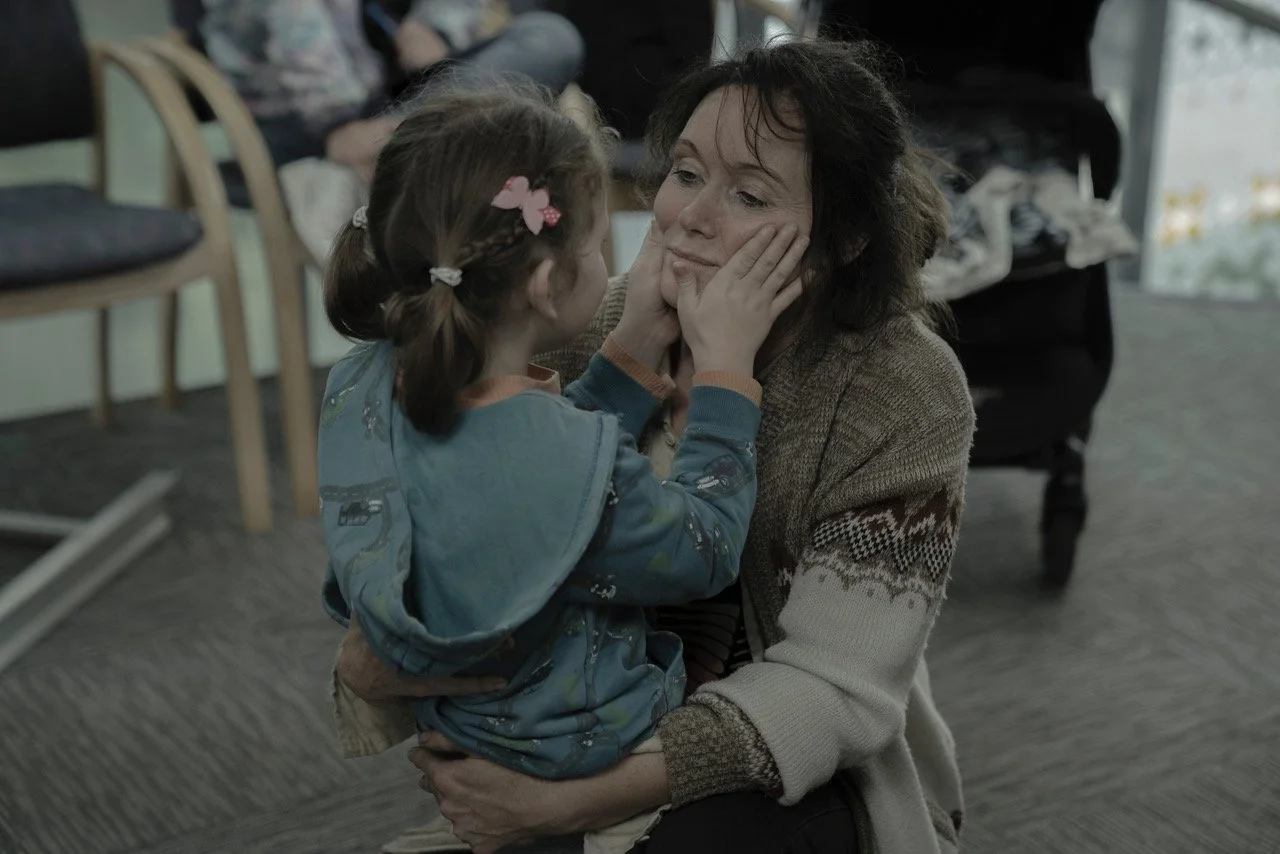The Justice of Bunny King: A Troubled Character Takes Flight on a Soaring Performance
By Karen Gordon
Rating: B
The Justice of Bunny King, which follows the story of a woman at odds with the system, is a showcase for the superb Australian actress Essie Davis.
Set in a small town in New Zealand, Davis’ Bunny King is a bare notch above down and out. She makes her money washing car windshields at a busy street corner. When she’s done with that, she goes to the dark, dingy house occupied by her sister Grace (Toni Potter) and her children — including the teenaged Tonyah (Thomasin McKenzie) — to do some eldercare, housework, and make meals. The house belongs to Grace’s edgy, shifty boyfriend Bevan (Errol Shand) who is not tremendously sympathetic to Bunny.
And Bunny, who does everything with a focused cheerfulness, needs the help — in particularly, she needs a permanent place to stay. Bunny is on a mission to regain custody of her two children who are in foster care: a teenaged boy and a younger daughter with special needs. One of the major requirements is that she have a permanent residence. In a town with a low vacancy rate, and given Bunny’s unemployment status, that seems near impossible. But nothing seems to discourage Bunny or diminish her fire.
In the meantime, Bunny must contend with the social workers at the Government Family Services. They control her access to her children, including supervised visits, always under the watchful eye of her social worker, who seems both sympathetic and wary. For Bunny, the system is a constant frustration, but she’s also given to impulsivity and colouring outside the lines.
What caused all of this? How she got to this point in her life isn’t made clear until late in the film. By then we’re aware of both Bunny’s determination, the odds against her, and her propensity for making decisions that make things worse for herself, even when she’s being heroic.
This is the feature film debut of New Zealand director Gaysorn Thavat, working from a script by fellow New Zealander Sophie Henderson. They’ve crafted a story about a woman who is complicated and resolute, trying to manipulate a system that she can’t pierce. Bunny’s driven by great love but can’t get her head far enough above water to comply and isn’t always aware of how the people around her are feeling.
Is it a lack of opportunity, or Bunny’s own personality quirks and perhaps some unspecified mental health issues? Or just a downward spiral that she can’t pull out of? It’s not as simple as the odds being stacked against her. Watching her with her kids, there’s a sense that maybe her eldest, who has experienced stability in foster care, doesn’t want to be with her again.
The system, like all systems, has a tinge of cruelty in the sometimes-officious way it deals with people like Bunny. But again, the movie doesn’t take the easy route. It also presents the social workers as empathetic to Bunny.
Her desperate and sometimes poor decision-making brings on problems for the character, but also for the film. At a certain point, Bunny’s story starts to feel too predictable. Still, the filmmakers treat Bunny with respect and deep compassion, aided by an excellent cast.
But their ace in the hole is Davis, who international audiences will know best from her role in The Babadook. In The Justice of Bunny King, it’s her beautiful, committed performance of this difficult woman that keeps us engaged until the very last scene.
The Justice of Bunny King. Directed by Gaysorn Thavat, screenplay by Sophie Henderson. Starring Essie Davis and Thomasin McKenzie. Available on demand September 30.



